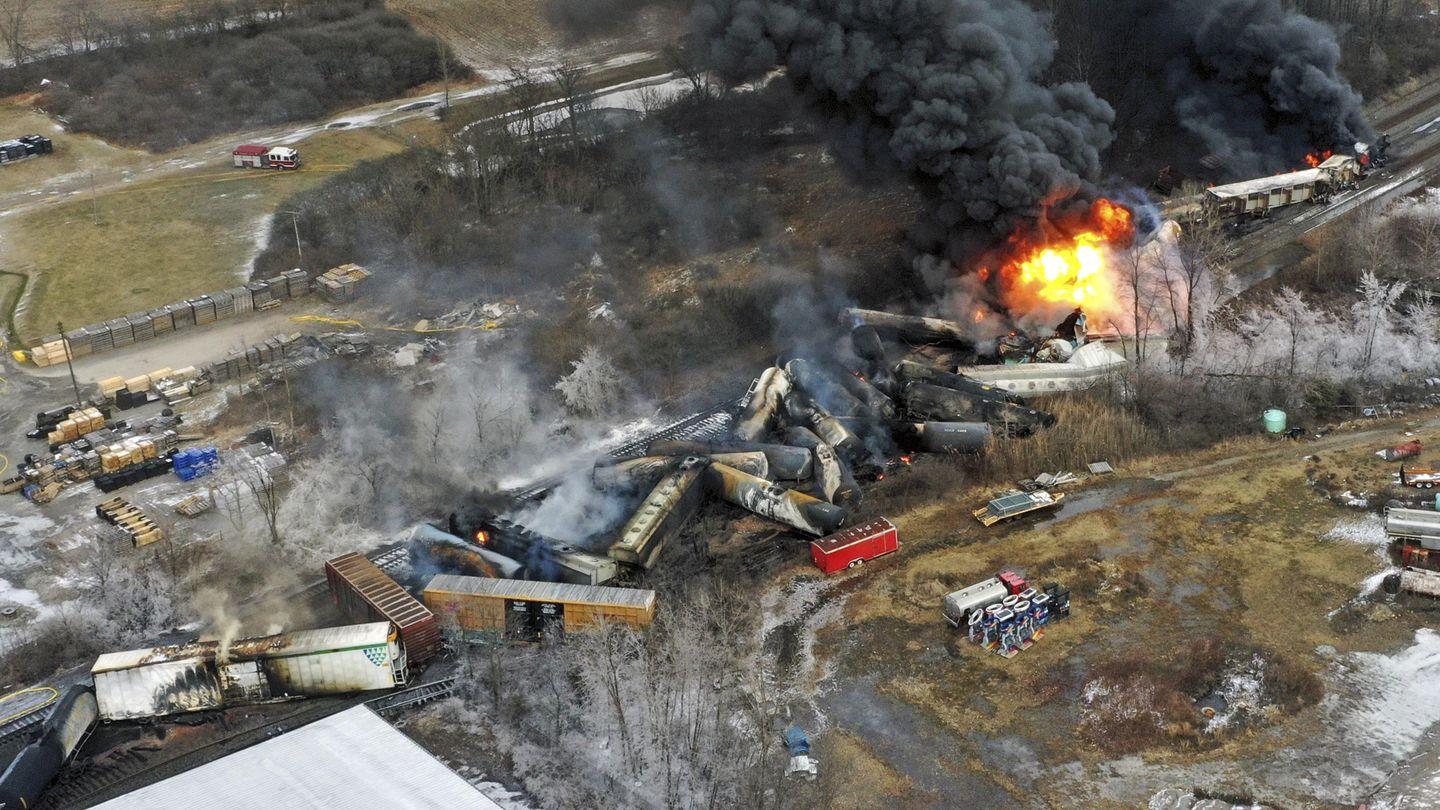A senior lawyer at the Environmental Protection Agency played a significant role in overseeing the cleanup efforts and congressional oversight of a toxic train derailment that occurred in East Palestine, Ohio. This incident took place last year and involved a train carrying hazardous materials that derailed, causing significant environmental damage. Despite her husband’s law firm representing the company responsible for the wreck, the lawyer continued to fulfill her duties at the EPA. This situation raises questions about potential conflicts of interest and the lawyer’s ability to impartially handle the cleanup and oversight of the incident.
The lawyer’s involvement in managing the cleanup efforts and congressional oversight of the train derailment highlights the challenges of navigating potential conflicts of interest in government positions. While it is not uncommon for individuals in positions of authority to have connections to various industries or companies, the lawyer’s direct connection to the company responsible for the wreck raises ethical concerns. The lawyer’s husband’s law firm representing the company could create a perception of bias or favoritism in the handling of the incident, as there may be a conflict between her personal interests and her professional responsibilities at the EPA.
The lawyer’s dual role in overseeing the cleanup efforts and congressional oversight of the train derailment while her husband’s law firm defended the company responsible for the incident could undermine the public’s trust in the EPA’s ability to impartially address environmental disasters. The lawyer’s actions may be subject to scrutiny and criticism, especially if there are allegations of misconduct or improper influence in the handling of the cleanup and oversight process. This situation highlights the importance of transparency and accountability in government agencies to ensure that decisions are made in the public’s best interest.
The lawyer’s continued involvement in the cleanup efforts and congressional oversight of the train derailment despite her husband’s law firm representing the company responsible for the wreck may also raise concerns about potential conflicts of interest within the EPA. It is essential for government officials to adhere to ethical standards and avoid situations that could compromise their objectivity or integrity in performing their duties. In this case, the lawyer’s decision to remain in her position and oversee the cleanup efforts may be seen as a conflict of interest that could impact the impartiality and credibility of the EPA’s response to the incident.
Overall, the lawyer’s role in managing the cleanup efforts and congressional oversight of the toxic train derailment in East Palestine, Ohio, while her husband’s law firm defended the company responsible for the wreck, underscores the complexities of balancing personal connections with professional responsibilities in government positions. This situation highlights the need for government officials to uphold ethical standards and maintain transparency in their actions to avoid conflicts of interest and protect the integrity of public institutions. As the EPA continues to address environmental disasters and hazardous incidents, it is crucial for agency officials to prioritize the public’s interests and demonstrate a commitment to ethical decision-making in fulfilling their duties.









